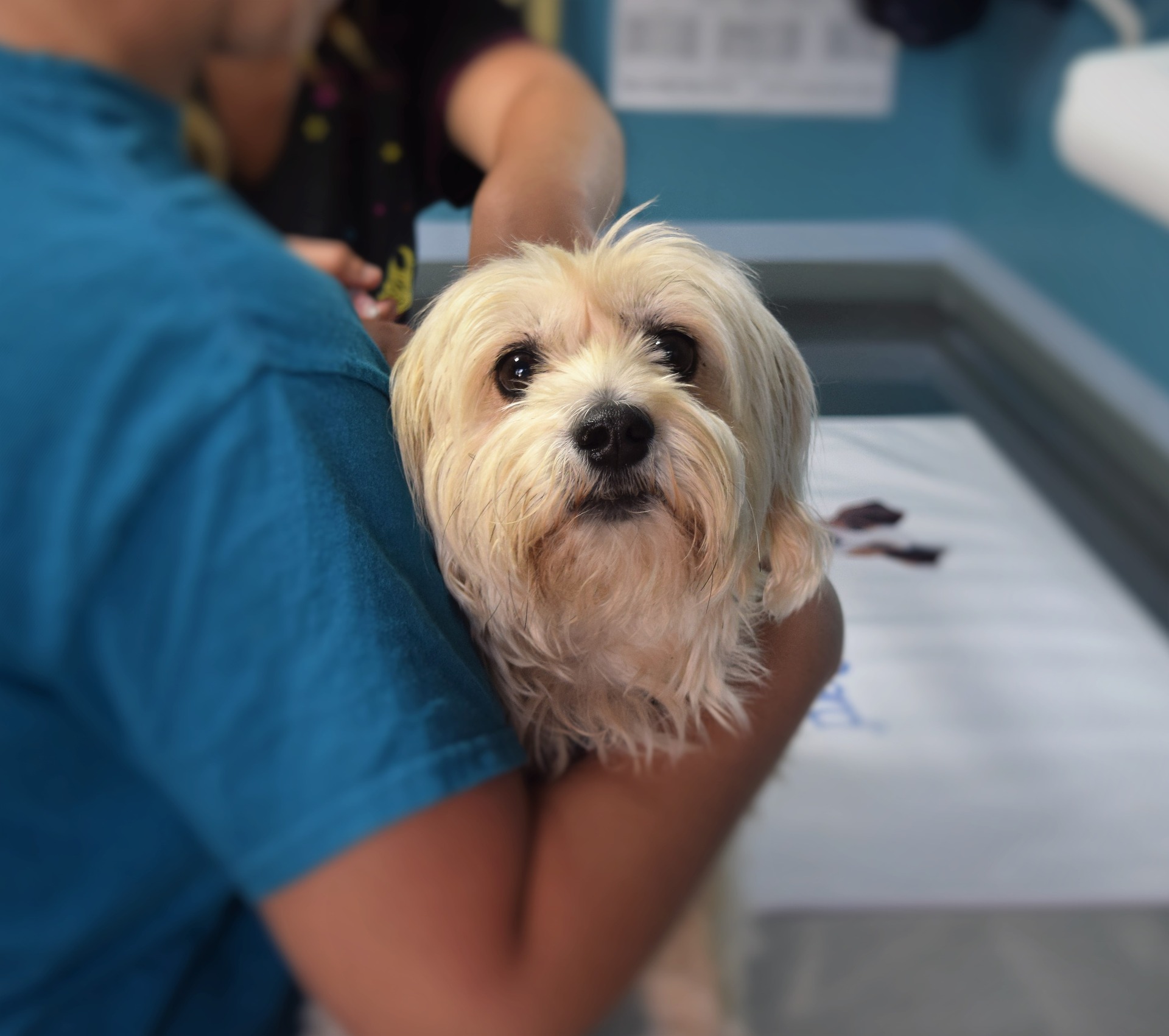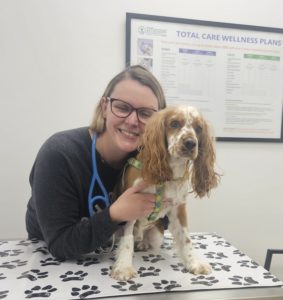Looking after the health and wellbeing of a pet is not entirely different from looking after the health and wellbeing of yourself. Preventative care, a routine checkup performed by a veterinarian, is the most effective method of stopping diseases before they occur or detecting them early before they can do any real damage.
Taking your pet to visit a veterinarian regularly (every six months to one year) will ensure that they are happy and healthy. While most adult pets are fine with an annual checkup, younger and older animals may need to check in with their vet more regularly to make sure that things are progressing smoothly. At this annual visit, your veterinarian will check your pet’s weight, temperature, pulse, and respiration rate. Vets will scan your pet for any obvious signs of illness and will likely ask you questions about your pet’s normal behavior.
At your annual visit, your vet will make sure that your pet is up to date with all their vaccines and administer any necessary booster shots. They will also perform several tests to scan for common ailments. For example, your pet may receive fecal testing to scan for several intestinal parasites. The diseases that can result from these parasites can be asymptomatic and are easier to eliminate the earlier they are detected.
There are several blood tests that can be performed to make sure that your pet’s internal parameters are up to par. These blood tests can be used to detect feline leukemia and feline immunodeficiency viruses in cats. Your vet may recommend that a complete blood count (CBC) and chemistry panel be performed. The CBC helps evaluate red blood cells, white blood cells and platelet counts. A chemistry panel, often run in conjunction with a CBC, checks for any abnormalities in kidneys or liver, monitors electrolytes, as well as proteins and blood glucose (sugar) levels. Variations in any of these parameters may indicate the presence of a viral or bacterial infection and ensure that your pet receives the immediate specialized care they need.
Annual checkups are also a good opportunity to have your pet microchipped and to make sure that their microchip information is up to date. In the event that your pet runs away from home, microchips are the most reliable line of defense to get them returned safely.
In between annual visits, there are steps you can take at home to be certain that your four-legged best friend is in good health. As pet owner, you are responsible for your pet’s nutrition and feeding, their dental care, and for paying close attention to their behavior. Feeding your pet a healthy, well balanced diet ensures that their internal systems will have the nutrients they need to thrive and prevent obesity.
Daily brushing is the best way to keep your pet’s mouth healthy. Most pets, even cats, can be trained to tolerate brushing. Not only will daily brushing improve the smell of your pet’s breath, it will also result in better overall health for your pet. Dental disease is one of the most common diagnosis in adult pets, and in some severe cases, can lead to kidney and heart problems. Check your pet store for specially designed toothbrushes and toothpaste or ask your vet for a recommendation.
When in doubt, it is always best to call your veterinarian with any questions or concerns, but generally these annual checkups and attentive pet parenting will keep your best friend in tip top shape.
Works Cited
Preventative Pet Healthcare, www.avma.org/public/PetCare/Pages/Preventive-Pet-Healthcare.aspx.
Bright, Eloise. “Why Your Pet Needs To See The Dentist | Love That Pet™.” Love That Pet, 2 Oct. 2017, www.lovethatpet.com/blog/vet-care/why-your-pet-needs-to-see-the-dentist-every-6-months/.
“Canine Laboratory Tests For Veterinary Care.” The Drake Center For Veterinary Care, 19 Aug. 2016, www.thedrakecenter.com/services/dogs/laboratory-blood-tests.
Mon Feb 29 20:31:00 EST 2016. “What to Expect at Your Cat’s Annual Checkup.” Vetstreet, www.vetstreet.com/our-pet-experts/what-to-expect-at-your-cats-annual-checkup.
“What Is Preventative Veterinary Wellness Care and What Is Your Part as a Pet Owner? -.” VIP Petcare, 27 Apr. 2018, www.vippetcare.com/preventative-veterinay-care/.







